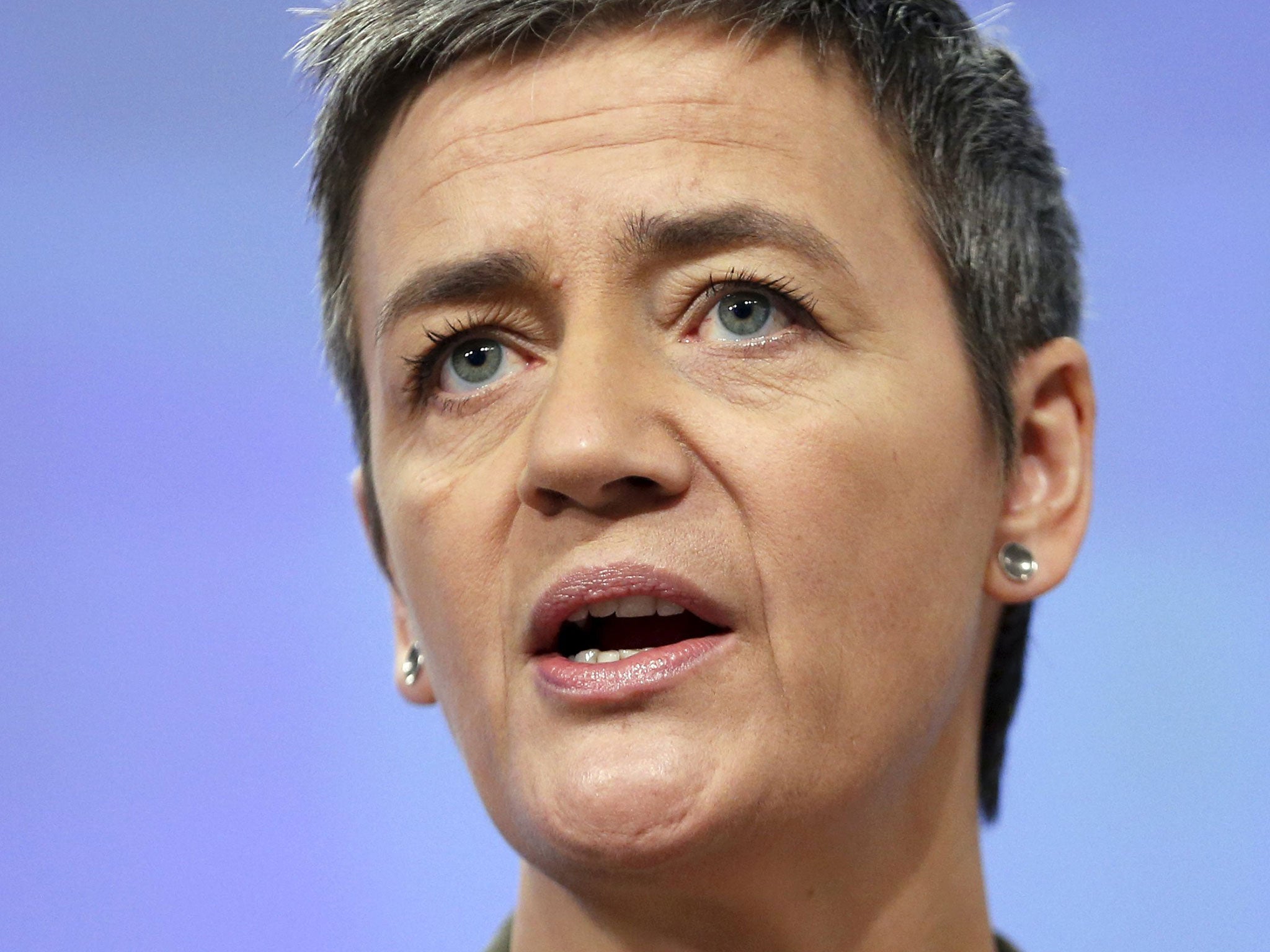European Commission clamps down on Belgian multinational tax dodge
Ruling on Belgian scheme to impact 35 global firms, including the beer giant AB Inbev

Your support helps us to tell the story
From reproductive rights to climate change to Big Tech, The Independent is on the ground when the story is developing. Whether it's investigating the financials of Elon Musk's pro-Trump PAC or producing our latest documentary, 'The A Word', which shines a light on the American women fighting for reproductive rights, we know how important it is to parse out the facts from the messaging.
At such a critical moment in US history, we need reporters on the ground. Your donation allows us to keep sending journalists to speak to both sides of the story.
The Independent is trusted by Americans across the entire political spectrum. And unlike many other quality news outlets, we choose not to lock Americans out of our reporting and analysis with paywalls. We believe quality journalism should be available to everyone, paid for by those who can afford it.
Your support makes all the difference.Some 35 multinational companies will be forced to hand back €700m (£524m) in tax that they failed to pay under an outlawed Belgian “excess profit” tax scheme.
The European Commission ruled yesterday that selective tax advantages granted by Belgium are illegal under EU state aid rules. The commission didn’t name any of the mainly European companies hit by the ruling, but reports suggested they included global brewer AB Inbev and British American Tobacco.
Other companies linked to the scandal included Atlas Copco, BP, BASF, Belgacom (now known as Proximus Group), Celio and Wabco.
Margrethe Vestager, the commissioner in charge of competition policy, said: “Belgium has given a select number of multinationals substantial tax advantages that break EU state aid rules. It distorts competition … by putting smaller competitors who are not multinational on an unequal footing.”
She pointed out there are many legal ways for EU countries to subsidise investment, but if a country gives multinationals illegal tax benefits that allow them to avoid paying taxes on the majority of their actual profits, it seriously harms fair competition, “ultimately at the expense of EU citizens”.
AB Inbev, still awaiting regulatory approval on its proposed merger with SABMiller, confirmed that it benefits from the type of tax ruling judged illegal by regulators. It said it was disappointed by the EU’s decision: “We will consider our options, taking into account the reactions by the Belgian authorities.” That was believed to suggest that it may appeal against the decision with the EU’s top courts in Luxembourg.
The ruling is the latest in the EU’s crackdown on global tax avoidance. In October the EU ruled that Starbucks in the Netherlands and Fiat in Luxembourg had benefited from illegal tax deals and ordered the governments to reclaim up to €30m from each company. However, both decisions are expected to go to appeal.
The latest investigation centred on the Belgian “excess profit” tax scheme, in force since 2005, which allowed multinational companies to pay substantially less tax in Belgium. The scheme cut the corporate tax base of the companies by up to 90 per cent.
The EC ruled that the scheme diverged from normal practice under Belgian company tax rules, which is illegal under EU state aid rules.
The ruling is just the tip of the iceberg, claimed Anders Dahlbeck, the tax justice policy adviser at ActionAid.
“The scheme is one of many unfair corporate tax giveaways that have allowed companies to duck paying their fair share of tax in the EU and in the poorest countries in the world,” he said.
The international charity reckons that developing countries lose $138bn (£95bn) a year to similar corporate tax breaks.
Join our commenting forum
Join thought-provoking conversations, follow other Independent readers and see their replies
Comments